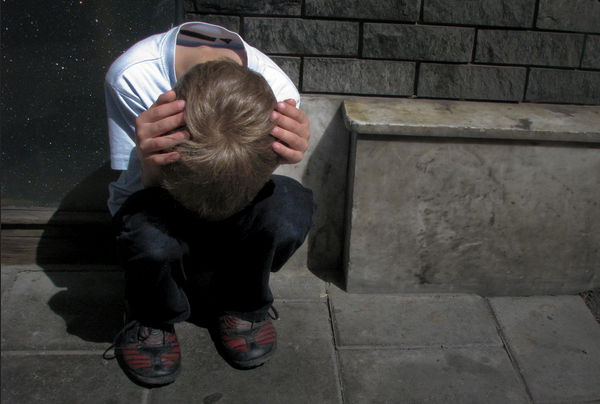We’d like to draw the following to readers’ attention. As you’d expect from OnTheWight, we want to be upfront with our readers.
When compiling the report below, in error we conflated (joined together) two reports by the End Child Poverty campaign, reaching an incorrect conclusion on the size of the child poverty problem here on the Island. We’ve amended the article below accordingly.
The 16,800 children identified by the End Child Poverty coalition report on the Isle of Wight (That’s 57% of IW 0-19 year olds) are affected by ‘below inflationary uprating of CB and CTC’ – ie they say that families have less money to spend since 2012 (eg on heating and food), as Child Benefit (CB) and Child Tax Credits (CTC) have only increased at a fixed 1%, below the rate of inflation.
As the May 2015 report says
The value of children’s benefits is closely linked to the scale of child poverty. The previous government’s decision to increase benefits at a level below inflation at 1% for three years is estimated to have pushed 200,000 more children into poverty.
The percentage of children in poverty on the Island, once housing costs have been paid, is 27.87% the campaign says. It’s over half of the Island’s children that have been affected by the freezing of Child Benefit and Child Tax Credits.
28% of the Island’s children in poverty is still a significant problem – one that that warrants discussion – Ed.
Figures recently released by the End Child Poverty coalition reveal that a staggering 16,800 children on the Isle of Wight – 57% of the Island’s children – have been affected by the decision of the last government to apply restrictions to Benefits provided for the offspring of families on low incomes.
The South of England is often considered wealthy and socially mobile, but there are many pockets of deprivation, where families are struggling to survive, particularly on the Isle of Wight.
16,800 children affected
With a population of 138,300, just over 20% (29,100) of Isle of Wight residents fall within the 0-19 year old age bracket. Of those, a staggering 16,800 children have been affected because of the below-inflation increases to child benefit and child tax credit.
The impact of poverty is widespread and, as pointed out by the campaign, can set in motion a deepening spiral of social exclusion, creating problems in education (poor standards are well-reported over many years), employment, mental and physical health and social interaction.
All of these problems not only impact those involved, but others in the community around them.
Calls for action
Concerned for families in poverty and the future of young people on the Island, the Isle of Wight Trades Union Council tell OnTheWight they will be contacting Isle of Wight Conservative MP, Andrew Turner, over the matter.
Campaign to End Child Poverty
The Campaign to End Child Poverty is made up of more than 150 organisations from civic society including children’s charities, child welfare organisations, social justice groups, faith groups, trade unions and others, united in our vision of a UK free of child poverty.
Call for Triple lock on Child Benefits
Campaign to End Child Poverty is asking the government to provide a Triple lock, as they had given to pensions, to Child Benefits. In their words from the report:
In April 2015, the previous government announced it would give pensions a “triple lock” guarantee that they would rise in line with inflation, earnings, or by 2.5% – whichever is the highest.
As a first step we are asking the Government to lock the uprating of child benefit and child
tax credit in line with price rises (CPI) for at least the next two years. As soon as possible the second lock, in line with average earnings, should be added. By 2020, a full triple lock
should be in place for children’s benefits, guaranteeing a minimum yearly increase of 2.5%.
Definition of poverty
The definition of poverty varies depending on who is producing the figures, but is generally based around families in receipt of in-work tax credits, or out of work benefits, where the reported family income is less than 60 per cent of median income.
Article edits – Definition of poverty added. Headline, excerpt and some copy amended as per statement at top of article.
Sources: End Child Poverty, Daily Echo, Openly Local and IWC 2011 Census Short Changed: the true cost of cuts to children’s benefits
Please be aware the majority of the comments below were left prior to changes being made to article’s headline and content – see statement above





